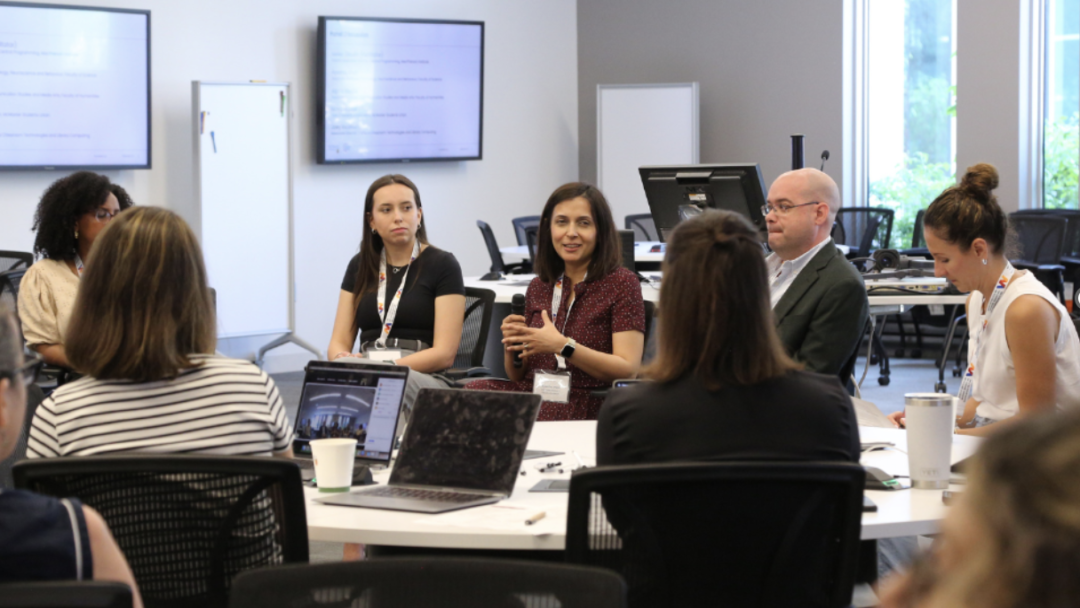McMaster new Faculty encouraged to “find joy in the classroom”

McMaster University welcomed 20 new instructors at its annual New Faculty Orientation on Aug. 15. Attendees heard from staff, students, and fellow instructors about their experiences within McMaster’s teaching and learning community and learned about the variety of supports and services available as they transition into their new roles.
Attendees heard from speakers about strategies for maintaining student engagement, navigating the opportunities and challenges of generative AI, approaches for building interpersonal connections with students and general advice for new instructors.
“Be kind to yourself and have a very clear description of what that looks like,” said Ayesha Khan, who is an associate professor in the Faculty of Science. “You are thinking about your research and your teaching, but don’t forget about yourself.”
Adding to that advice, Alpha Abebe, associate professor in the Faculty of Humanities encouraged instructors to “find joy in the classroom” and not to hesitate to reach out for support from other colleagues and resources like the University Library, the MacPherson Institute and Campus Classroom Technologies.
Since the pandemic instructors have experimented with different formats and approaches to keep students engaged both online and in the classroom. Joey Ricottone, associate director, Campus Classroom Technologies and Library Computing shared how these learnings have helped inform the advice his unit provides to instructors looking for support with classroom technology.
“How do we provide choice and consistency of experience?” said Joey Ricottone, associate director, Campus Classroom Technologies and Library Computing. “We want you to be able to make choices about how you use your classroom and students want choices for how they engage with that material.”
Choice has become increasingly important to students, particularly those who are facing challenges outside the classroom during the academic year. Instructors should recognize there are good reasons for students to seek flexibility in their education such as caregiving responsibilities, financial constraints and even full-time work obligations.
Speaking from the student perspective, Maya Hobbs, vice-president of education at the McMaster Students Union, suggested getting feedback from students whenever possible.
“Ask students what they want to see in the course and what is the best way to engage them. Checking in with students can give you information on how to proceed,” said Hobbs.
Instructors can find support for collecting mid-course feedback through the MacPherson Institute using do-it-yourself resources, or they can consult with an Educational Developer to engage in a course refinement or teaching observation.
As the fall term quickly approaches, Rochelle Maurice, a new faculty member in the School of Social Work, appreciated hearing about the supports available for instructors including some of the foundational teaching resources as well as information about more complex topics like generative AI, evaluations and fostering conversations with students.
“The breakout groups were really helpful because there were lots of topics to choose from that impact my roles and responsibilities as a faculty member when interacting with a student,” said Maurice, who worked in healthcare as a social worker and bio-ethicist before coming to McMaster. “All the amazing things the MacPherson Institute can offer support with were helpful. Especially for someone like me coming into an academic environment from a different industry.”
In her closing remarks, Kim Dej, vice-provost, teaching and learning, took a moment to share advice and reflections with the group of new instructors.
“We really do have great students at McMaster,” said Dej. “They are excited, and they are happy to be here, and they are ready to learn. Engage with them and be the person they remember.”
Updates
